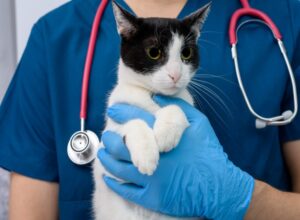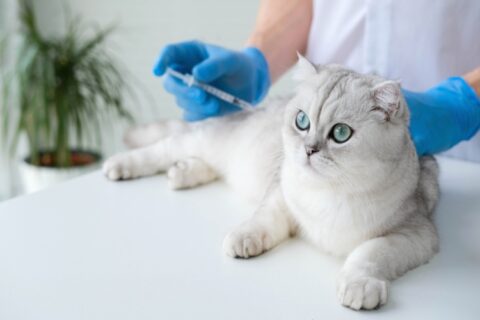Understanding Kidney Failure in Cats
Understanding Kidney Failure in Cats
Kidney failure in cats, also known as renal failure, occurs when a cat’s kidneys lose their ability to effectively filter waste and toxins from the blood. The condition can be serious, affecting a cat’s overall health and quality of life. At Reed Animal Hospital, we understand how important it is to recognize the early signs of kidney failure and provide compassionate care for your furry friends.

Types of Kidney Failure in Cats
There are two main types of kidney failure in cats:
- Acute Renal Failure (ARF)
ARF occurs suddenly and is often caused by exposure to toxins, infections, or dehydration. This type of kidney failure can develop within days or weeks and requires immediate medical attention. - Chronic Kidney Failure (CKF)
CKF develops gradually over months or years, often due to age-related kidney degeneration. It is one of the most common health issues in older cats.
Causes of Kidney Failure in Cats
Several factors can lead to kidney failure in cats, including:
- Toxin exposure – Ingesting antifreeze, certain medications, or toxic plants.
- Infections – Bacterial infections.
- Age – Older cats are more susceptible to CKF.
- Genetics – Some breeds, such as Persians and Abyssinians, may be more predisposed.
- Underlying health conditions – Issues like high blood pressure or urinary blockages.
Signs of Kidney Disease in Cats
Recognizing cat kidney disease symptoms early can make a significant difference in treatment outcomes. Common symptoms include:
- Increased thirst and urination
- Loss of appetite
- Weight loss
- Vomiting or diarrhea
- Bad breath with a chemical smell
- Lethargy or depression
- Poor coat condition
If you notice any of these signs of kidney disease in cats, contact Reed Animal Hospital for a thorough evaluation.
Diagnosing Kidney Disease in Cats
Diagnosing kidney disease requires a combination of tests to determine the severity and underlying causes. These tests may include:
- Blood tests – To check for elevated levels of waste products like creatinine and urea
- Urinalysis – To assess kidney function and detect abnormalities
- Ultrasound or X-rays – To identify structural changes or blockages
Our skilled veterinarians in Campbell and Saratoga use advanced diagnostic tools to pinpoint the issue and recommend appropriate treatment.
Preventive Measures for Cat Kidney Disease
While not all kidney issues can be prevented, you can take certain steps to reduce your cat’s risk:
- Hydration – Always provide clean, fresh water to encourage your cat to stay hydrated.
- Routine Checkups – Schedule regular wellness exams to monitor kidney function and detect any early signs of disease.
- Diet Management – Feeding a high-quality, balanced diet tailored to your cat’s needs supports overall health and kidney function.
- Toxin Avoidance – Keep harmful substances, like antifreeze, medications, and certain plants, out of your cat’s reach.
Prevention plays a critical role in maintaining your cat’s health. Our team at Reed Animal Hospital works closely with pet owners to develop effective preventive strategies.
Treatment Options for Cat Kidney Disease
Treatment for kidney disease depends on the type and stage of the condition. Options may include:
- Fluid Therapy – Administered intravenously or subcutaneously to combat dehydration and support kidney function.
- Dietary Changes – Cats with kidney disease benefit from specialized diets that are low in protein, phosphorus, and sodium, which reduces the workload on their kidneys.
- Medications – These may include drugs to control blood pressure, reduce nausea, or manage anemia.
- Monitoring – Regular follow-ups to track your cat’s response to treatment and adjust the care plan as needed.
For advanced cases, treatments like dialysis or even surgical intervention may be necessary. Our veterinarians in Campbell and Saratoga are equipped to provide compassionate, high-quality care for cats with kidney disease at all stages.
Supporting Your Cat Through Kidney Disease
Kidney failure can feel overwhelming, but with the right care, many cats continue to lead happy, fulfilling lives. At Reed Animal Hospital, we are dedicated to partnering with you in your pet’s health journey. From early detection to advanced treatment options, we offer a comprehensive approach to managing kidney disease in cats.
Call to Action
If you’re concerned about cat kidney disease symptoms or want to learn more about preventive care, contact us today. Visit Reed Animal Hospital to schedule an appointment at either our Campbell or Saratoga locations. Together, we’ll help your furry friend stay happy and healthy for years to come.

